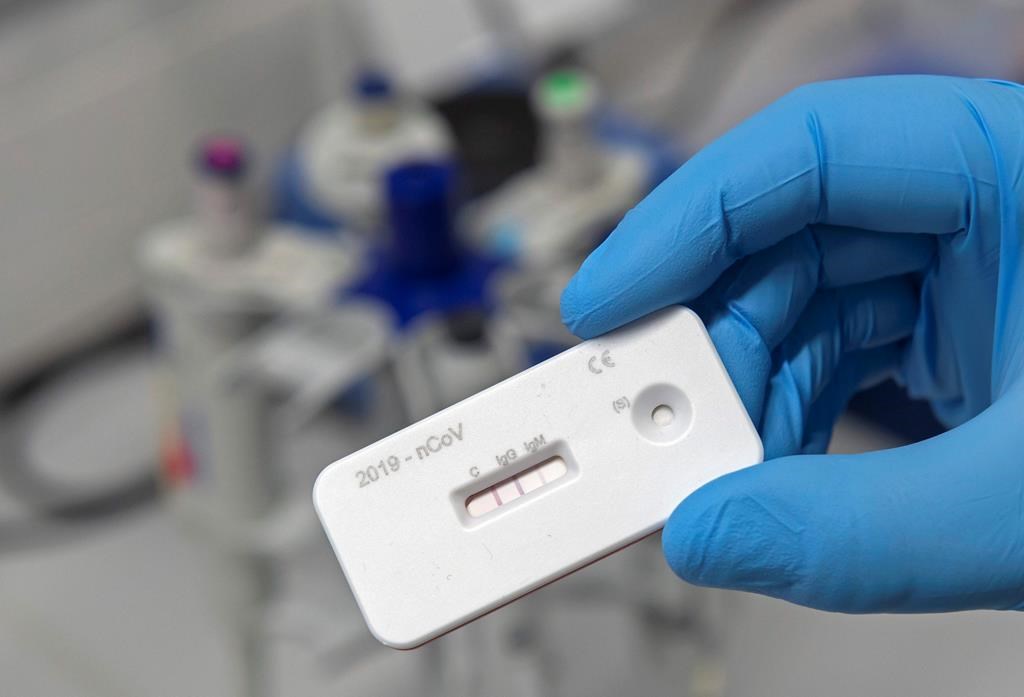A committee of more than 30 experts, which has been studying the question of COVID-19 rapid tests since December, has finally released its report.

They conclude that rapid testing should be deployed to isolated regions, in support of testing clinics and in long-term care cases to investigate possible outbreaks.
“It’s not as efficient (as the standard PCR test), but it’s still acceptable, said Isabelle Goupil-Sormany, a doctor adviser for the ministry of health.
However, the committee said that more research is required to evaluate the use of the tests before they are used in workplaces or for organized sports.
Goupil-Sormany cautioned against the “White House effect,” where personnel in the White House who were tested daily “let down their guard” when it came to other health measures, which ultimately led to outbreaks.
The Quebec government has been criticized for not using the rapid COVID-19 tests it has available. Some experts say the province could be doing a lot more screening and catching cases earlier.
During a press conference Monday, Quebec Health Minister Christian Dubé said the province doesn’t need to use the rapid tests because it has enough regular PCR tests and these tests are more efficient. He says other provinces have made the same decision.
- ‘She gets to be 10’: Ontario child’s heart donated to girl the same age
- Bird flu risk to humans an ‘enormous concern,’ WHO says. Here’s what to know
- Buzz kill? Gen Z less interested in coffee than older Canadians, survey shows
- Shoppers faces proposed class action over claims company is ‘abusive’ to pharmacists
Quebec has received more than two million rapid tests from the federal government. During a technical briefing on Thursday, the committee of experts said they plan to deploy all the rapid tests available to the province, but it does not recommend widespread testing in schools, as some politicians and scientists have suggested.
“It’s not an avenue being considered if there is no outbreak,” said Marie-Eve Bédard, Ministry of health assistant deputy minister. She added that rapid antigenic tests for children who are asymptomatic are not recommended.
There is also a logistical challenge. It would take 30,000 health personnel to administer tests to 900,000 students. Those tests could produce a high number of false negatives, but also false positives, sending thousands of students to be tested again with the regular PCR test.
That would create a major strain on the system, explained Goupil-Sormany.
“We would no longer be able to test anyone,” she said.






Comments